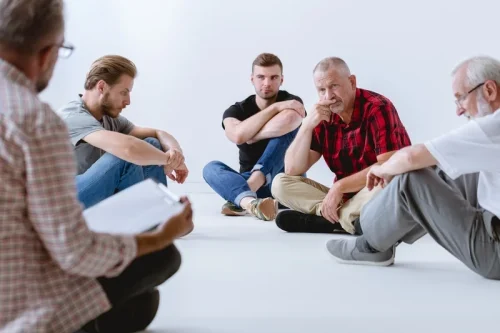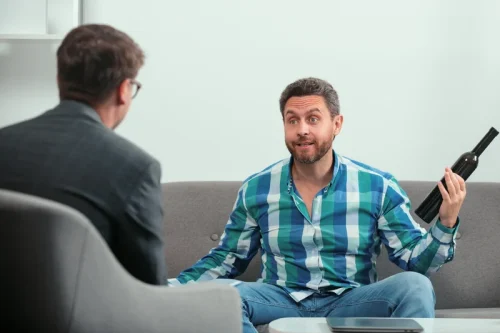
Alcohol-induced panic attacks are typically triggered by the body’s heightened anxiety response during withdrawal. Individuals with pre-existing anxiety disorders may be more prone to panic attacks. Several lifestyle choices increase the risk of alcohol-induced anxiety disorder. Heavy or binge drinking is a significant factor, as does alcohol cause anxiety consuming large amounts of alcohol in a short period can alter brain chemistry, triggering anxiety. Individuals who use alcohol to cope with stress, social anxiety, or other mental health issues are at higher risk.
Why Do You Get Anxiety After Drinking?
- Chronic illnesses, such as liver disease or cardiovascular conditions, can interact with alcohol use to worsen anxiety symptoms.
- In keeping with the guidelines of Alcohol Health & Research World, review articles are emphasized.
- Also, this review does not address potentially important individual differences, such as sex.
- By understanding how alcohol affects your body and brain, you can find ways to reduce or avoid hangxiety altogether.
- A 2018 narrative review suggests that 21.9% to 24.1% of people with an anxiety disorder or mood disorder use alcohol or drugs to relieve their symptoms.
- Specifically, mindfulness meditation showed an effect size of 0.38 for anxiety improvement at 8 weeks and 0.22 at 3-6 months, while depression was reduced by 0.30 at 8 weeks and 0.23 at 3-6 months.
- While many people initially turn to alcohol for relief from stressors or social anxieties, it’s crucial to understand how these behaviors perpetuate cycles of dependence and heightened emotional distress.
For every drink you have, you urinate as much as 50% to 100% more water, and this water is taken from other parts of the body. Drinking is commonly used Oxford House to numb anxious thoughts, and yet paradoxically alcohol can cause more panic attacks to occur. It is important to remember, however, that certain studies show some overlap among depressive, anxiety, and alcoholic disorders in the same family. Many of these studies are mentioned in the Schuckit and Hesselbrock review, including the work by Merikangas and colleagues (1985). Other such studies are highlighted in the review by Brady and Lydiard (1993). High levels of depression are especially worthy of concern, because the risk of death by suicide among alcoholics, estimated to be 10 percent or higher, may be most acute during these depressed states.
Put Hangxiety to Bed
In this stage, compulsive substance use is aimed, in part, at decreasing the negative affect caused or aggravated by the allostatic reset in the brain’s stress and mood systems. Recent “big data” modeling approaches have advanced the understanding of epidemiological data related to the association between anxiety disorder subtypes and risk for alcohol misuse. Another study further highlights that heavy alcohol use affects multiple cognitive domains, including problem-solving, attention, and mental flexibility. Up to 80% of individuals with prolonged heavy drinking exhibit cognitive impairments, which can worsen anxiety symptoms due to disrupted brain function. In one survey, 20.3% of people with anxiety disorders said they used alcohol to cope.
Agoraphobia: Cause, Treatment, Anxiety
This is especially true for party drugs, such as ecstasy or MDMA, that give you a temporary high but can lead to anxiety as they wear off and you are coming down. The cycle of addiction is particularly dangerous to people with anxiety, because it masks the underlying anxiety while feeding the development of substance use disorder. This means it slows down brain activity and impairs various functions in the brain and body. This makes it a popular choice for self-medication, as people experience a temporary easing of anxiety and may feel more sociable.


It is also recommended that you consult your GP if you are concerned that you have a drinking problem. While for some people, it’s mild nerves, for others, it’s a wave of anxiety that feels impossible to ride out. The “Sunday scaries” may make you feel panicked, filled with dread and unable to relax. While it can be genuinely tempting to use alcohol to help anxiety, alcohol isn’t a safe or effective anxiety treatment.

The Relationship Between Alcohol and Anxiety Disorders

In addition to these, another overlooked reason that people experience severe anxiety during withdrawal is because alcohol has caused them to lose their original coping ability. Stress coping is a skill – a skill that you may not even know you have. The key is to not try to replace the effects of alcohol – you don’t want something else that numbs your anxiety without helping you cope with it. What you’re trying to do is reduce the impact of what happens to your brain when you’re dealing with stress. These activities lessen the impact of stress and anxiety, and when you can weaken the effects of stress, you give your mind a better chance of regaining its own natural coping strength. Yes, alcohol can contribute to anxiety disorders, both during and after consumption.
- Following a bout of heavy drinking, individuals may experience heightened feelings of anxiety, irritability, and low mood as their body attempts to recalibrate.
- Even after moderate drinking, withdrawal symptoms can occur as the effects of alcohol wear off.
- This insularity and particularism continue to impose significant opportunity costs in this field.
- Hangxiety is the stress or anxiety you start feeling after you consume alcohol.


Write a comment: